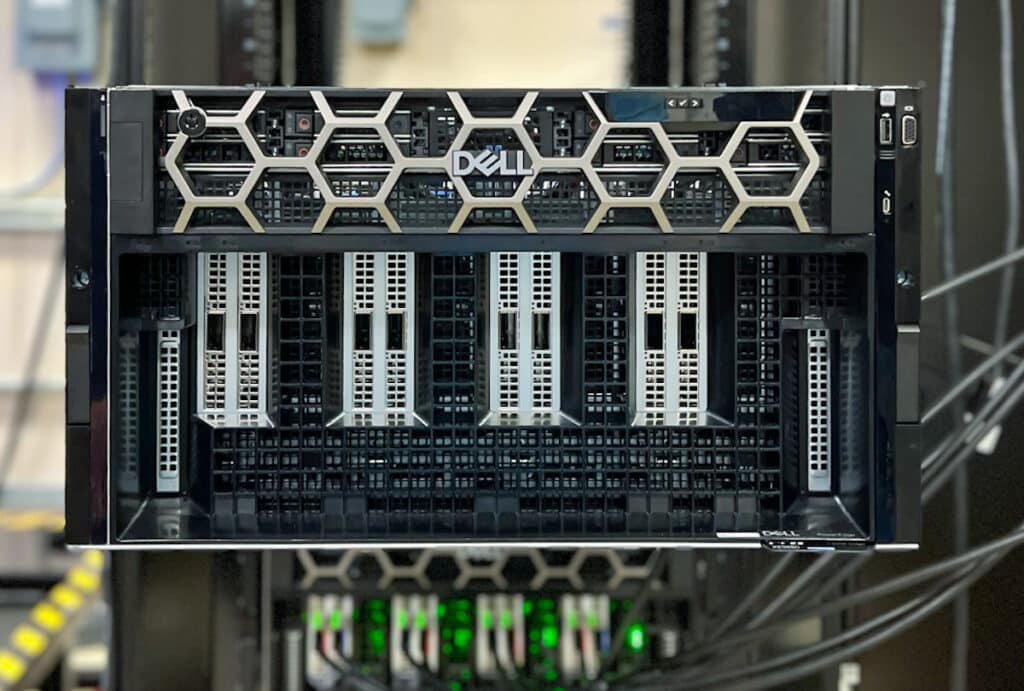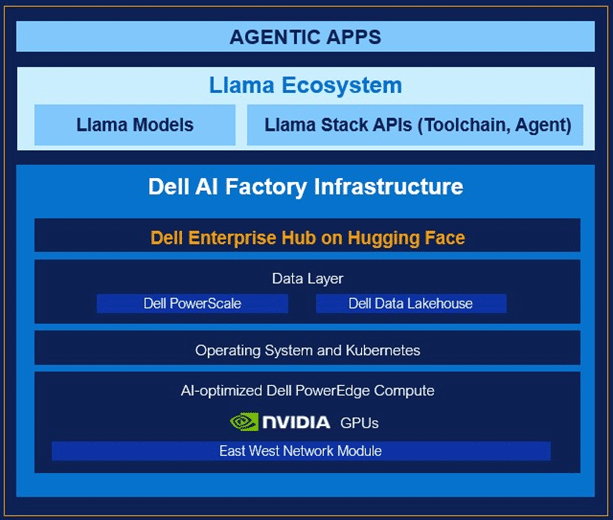Dell Technologies has announced support for standardized AI solutions optimized for Llama ecosystem. These solutions aim to simplify the development of AI applications and elevate the capabilities of agent-based workflows.
Elevating AI Applications with Agentic Workflows
Dell AI Solutions with Llama ecosystem are designed to simplify the developer experience and enhance the efficiency of AI applications. Llama Stack, a standardized software framework, supports multiple stages of AI development, including model training, fine-tuning, and production deployment. It now integrates tightly with PyTorch libraries, facilitating seamless deployment of retrieval-augmented generation (RAG) and other AI applications.

Combining Llama Stack with Dell AI Factory enables organizations to leverage enterprise-grade infrastructure, supported by Dell PowerEdge XE9680 servers equipped with NVIDIA H100 GPUs. This reference architecture provides scalability and performance, making it easier to develop agent-based AI applications.
The architecture offers Standardized APIs that simplify development by promoting code reuse and enabling plug-and-play functionality for current and future Llama models. Secure deployment with built-in security features ensures AI applications are compliant and protected. Dell’s Adaptable infrastructure supports diverse AI use cases, from single-node inferencing to multi-node deployments.
These features enable enterprises to implement workflows that involve multiple models and memory banks working together to solve complex business challenges. The reference architecture, integrated with Llama Stack, streamlines the execution of tasks such as inferencing, RAG, and synthetic data generation, while Llama Guard models establish safety measures and guardrails for enhanced security.
Empowering Data Scientists and Developers
Developing AI applications has challenges, including high costs, scalability concerns, and difficulty securing the necessary resources. Selecting the proper architecture and integrating and maintaining AI systems are critical. Dell’s AI Solutions with Llama aims to alleviate these challenges and benefit data scientists, developers, and IT decision-makers.

The reference architecture offers detailed guidelines for deploying Llama models on PowerEdge XE9680 servers, with validated workflows and sample code to expedite development.
The Dell AI Factory’s validated configurations streamline the installation of AI solutions in data centers, providing scalability across multiple nodes and backed by custom deployment services.
The Dell AI Solutions with Llama lets developers quickly adopt new AI models, tools, and frameworks using standardized building blocks, ensuring portable code across different environments. It simplifies data pipelines through the Dell Data Lakehouse and PowerScale Platforms. Additionally, Llama models are available on Dell’s Enterprise Hub via the Hugging Face platform. These models are pre-packaged, ready-to-deploy containers and scripts for secure and efficient deployment.
Dell also offers services for deploying Llama models, supporting strategy, data preparation, model implementation, and generative AI outcomes.
Introducing Llama 3.2: Unlocking Multimodal Intelligence
The release of Llama 3.2 represents a significant advancement in AI technology, providing developers with the tools to create a new generation of private, efficient, and responsible AI experiences. Llama 3.2 includes multilingual models ranging from 1B to 90B parameters capable of processing text and image inputs. These models, including the lightweight text-only options (1B and 3B) and the vision LLMs (11B and 90B), support long context lengths and are optimized for inference using advanced query attention mechanisms.
Llama 3.2’s 11B and 90B models offer image reasoning capabilities, including document-level understanding, such as interpreting charts and graphs and image captioning. The models also support real-time and batch inference, optimized for interactive and high-throughput workloads. When integrated with Dell’s AI Factory solutions, these models enable enterprises to leverage AI across many applications, including defect detection in manufacturing, enhancing diagnostic accuracy in healthcare, and improving retail inventory management.




 Amazon
Amazon